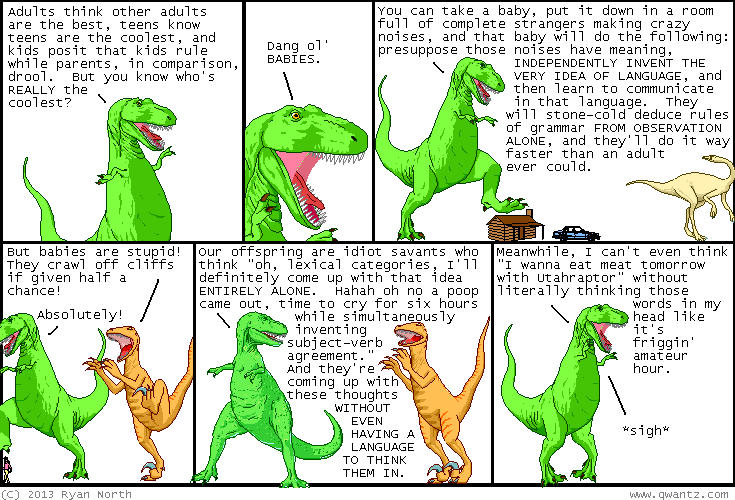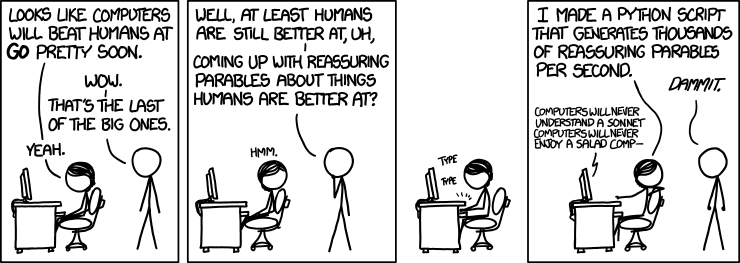I have a piece on Fresh Air today, behind the curve as usual, on the discussion that followed the Oxford Dictionary Online's inclusion of twerk, which Ben Zimmer covered in a post a couple of weeks ago ("Getting worked up over 'twerk'"). Actually I don't care much about twerk, whose coolness and credentials Ben defended definitively. But I think it's worth looking at the whole list of new words that appeared on the ODO blog post announcing the quarterly update, headed "Buzzworthy words added to Oxford Dictionaries Online – squee!":
apols, A/W (“autumn/winter”), babymoon, balayage (“a technique for highlighting hair”), bitcoin, blondie (small cake), buzzworthy, BYOD (“bring your own device”), cake pop, chandelier earring, child’s pose (yoga), click and collect, dad dancing, dappy, derp, digital detox, double denim, emoji, fauxhawk, FIL (“father-in-law”), flatform (shoe), FOMO (“Fear Of Missing Out”), food baby (“a protruding stomach caused by eating a large quantity of food”), geek chic, girl crush, grats, guac, hackerspace, Internet of things, jorts, LDR, me time, michelada (“drink made with beer, lime juice…”), MOOC, Nordic noir, omnishambles, pear cider[see comment below], phablet, pixie cut, prep (v. “prepare”), selfie, space tourism, squee, srsly, street food, TL;DR, trolly dash (UK supermarket promotion), twerk, unlike (v.), vom (“vomit”)
I’ve bolded the ones that seem to me to have a chance of being still current by the end of the decade, including a few that have been around for quite a while. Some of this is pure guesswork (if you have inside knowledge about bitcoin, let me know) and others may scrape by, but it's a fair bet that the vast majority are not going to survive your hamster.
Read the rest of this entry »



